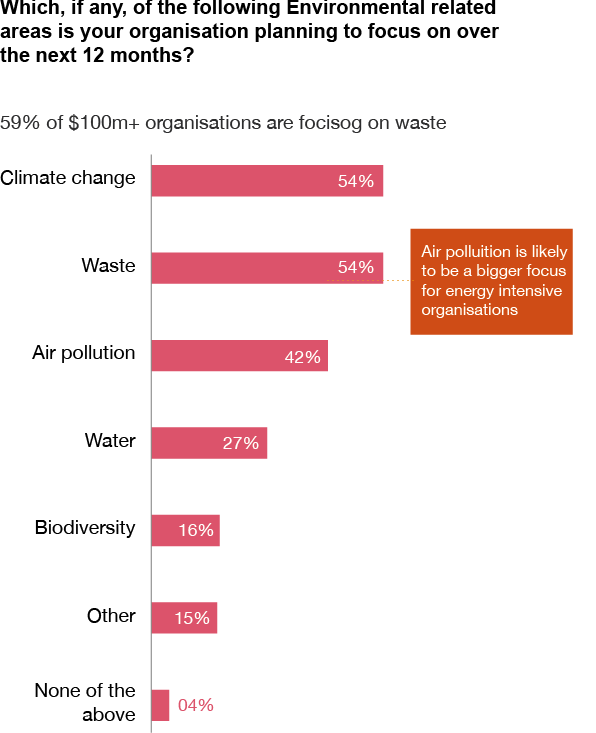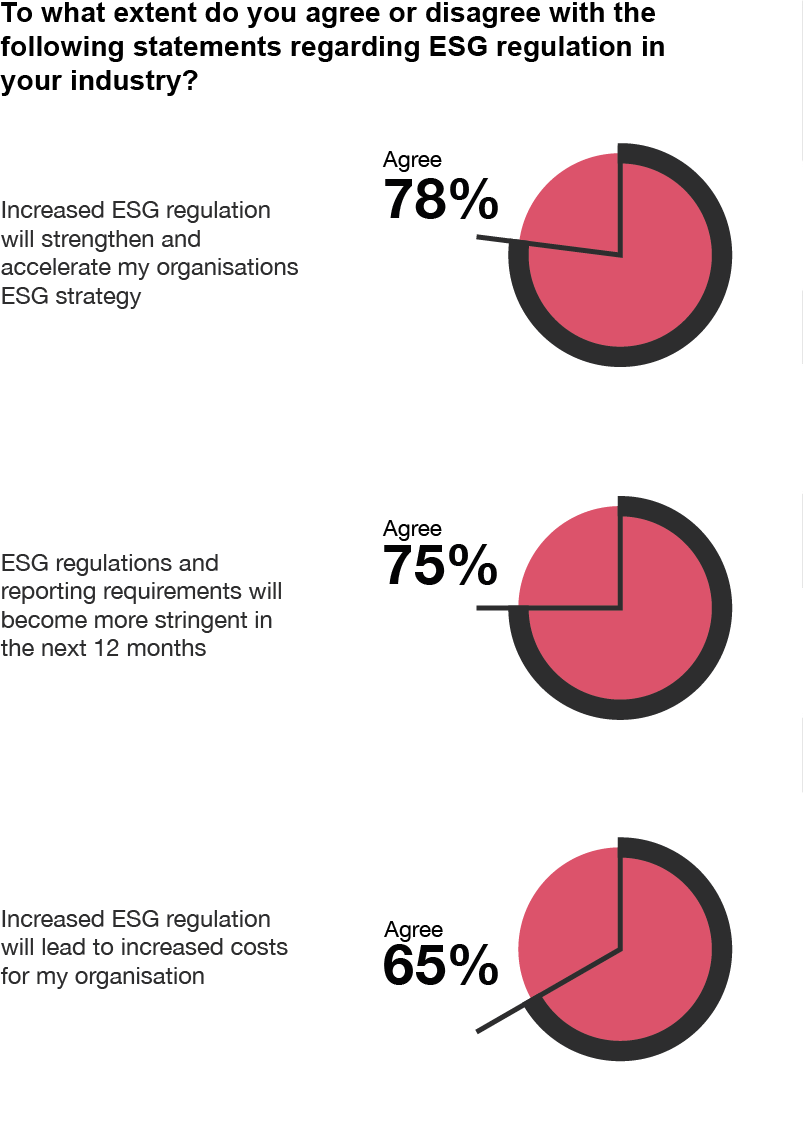
Our region is undergoing a rapid transformation, with this change driving economic growth, diversifying economies, creating jobs and improving overall quality of life. Reflected in national visions set out by individual countries, this transformation is threaded through every aspect of Middle Eastern society.
As a firm, we believe that embedding Environmental, Social and Governance (ESG) principles across all areas of economic and social evolution is essential to realising the ambitions of our region, enabling it to become a leader on the global sustainability stage. But what does this mean, in practical terms, for organisations and governments at the forefront of this transformation?
This year, for the first time, PwC Middle East conducted a survey of top level executives with responsibility for ESG in their organisations to better understand the level of ESG maturity in the region and to explore the main ESG issues facing businesses today.

“We have an ESG strategy because it’s the right thing to do; because it will become our licence to operate down the line; and because we need to support our customers from a business perspective. It is the future.”
Explore the 3 key themes from the findings
There is some lack of alignment between corporate and government ESG priorities. For example, water scarcity and biodiversity rank a low fourth and fifth place among the top environmental priorities for companies, despite national policies to protect both.
Bridging this gap is critical for greater alignment between corporate and national ESG strategies, meaning businesses and governments need to work together on key priorities or there is a risk of counter productive actions.
More positively, climate change, diversity & equality do rank highly which shows some synergies.

ESG is clearly on the corporate radar, but our findings show that companies in the region are still in the early stages of developing ESG strategies. While nearly 60% of respondents said they had a formal ESG strategy in place, further questioning showed this may be an overly optimistic claim.
What we can see is that the majority of companies are still in “start-up” mode when it comes to ESG strategy and implementation, with only 18% of respondents saying their companies had teams and systems in place to cover the full remit of ESG functions.

For ESG transformation to make an impact, a two-pronged approach is required. First, businesses must do everything in their power to deliver on ESG issues. Second, government bodies and regulators must develop clear policies and regulations to assist businesses in their transformations.
Businesses told us that they want clearer government policies and regulations to support ESG efforts. In our survey, 86% of large companies said increased ESG regulation would strengthen and accelerate the implementation of their own ESG strategies.

“Clear guidelines, a country roadmap for decarbonisation and a level playing field for industries are all required to enable Middle Eastern companies to advance in their ESG strategies. But companies can also maximise the opportunities of ESG-driven transformations by getting ahead of the game.”
Critical next steps for sustained ESG outcomes
Ensure you properly embed your ESG strategy with clear governance
From an organisational point of view, embedding an ESG strategy begins with defining ambition and priorities that are aligned with a company’s business rationale and with national goals. Ideally, there should be clear responsibilities and mandates within an organisation to oversee and coordinate the full suite of ESG functions, which is backed up by people with the right skills and capacity to be able to deliver the strategy.
Set clear KPIs & invest in robust data collection systems and analysis
KPIs must be set to measure progress and will be underpinned by having robust data collection and reporting systems. This will require investment to ensure alignment with global standards and that capacity is built to collect and report on non financial ESG metrics. Reporting can range from internal ESG reports to those that have been fully audited by a third party.
See the bigger picture
There are many business opportunities here for companies that move quickly to align their ESG priorities with those of their governments. Early adopters can generate new business services and products that create real value and wider benefits for society. An ESG strategy can also help anticipate and manage risks in a proactive manner, for example, the physical impacts of climate change.
Integration is key
ESG is a complex subject and many of the issues are connected. Adopting an integrated approach to ESG and embedding a strategy across different functions are important steps in reorienting businesses towards a value-creation ecosystem. In this system, traditional financial measures of success are complemented by new considerations that also create sustained value, including environmental sustainability, employee engagement, external partnerships and broader societal wellbeing.
A call to action for governments
When it comes to the role of governments and regulators, companies in our survey said they needed clear guidelines, country roadmaps for decarbonisation and a level playing field across industries. For example, the following policies were highlighted as having the potential to have the greatest impact on achieving their ESG strategy:
- E: Sustainable procurement and supply chain policies to ensure provision of more environmentally friendly products and services
- S: Having to prove a measurable impact in the community
- G: Policies enabling businesses to ensure ESG is a board level priority
Contact us













